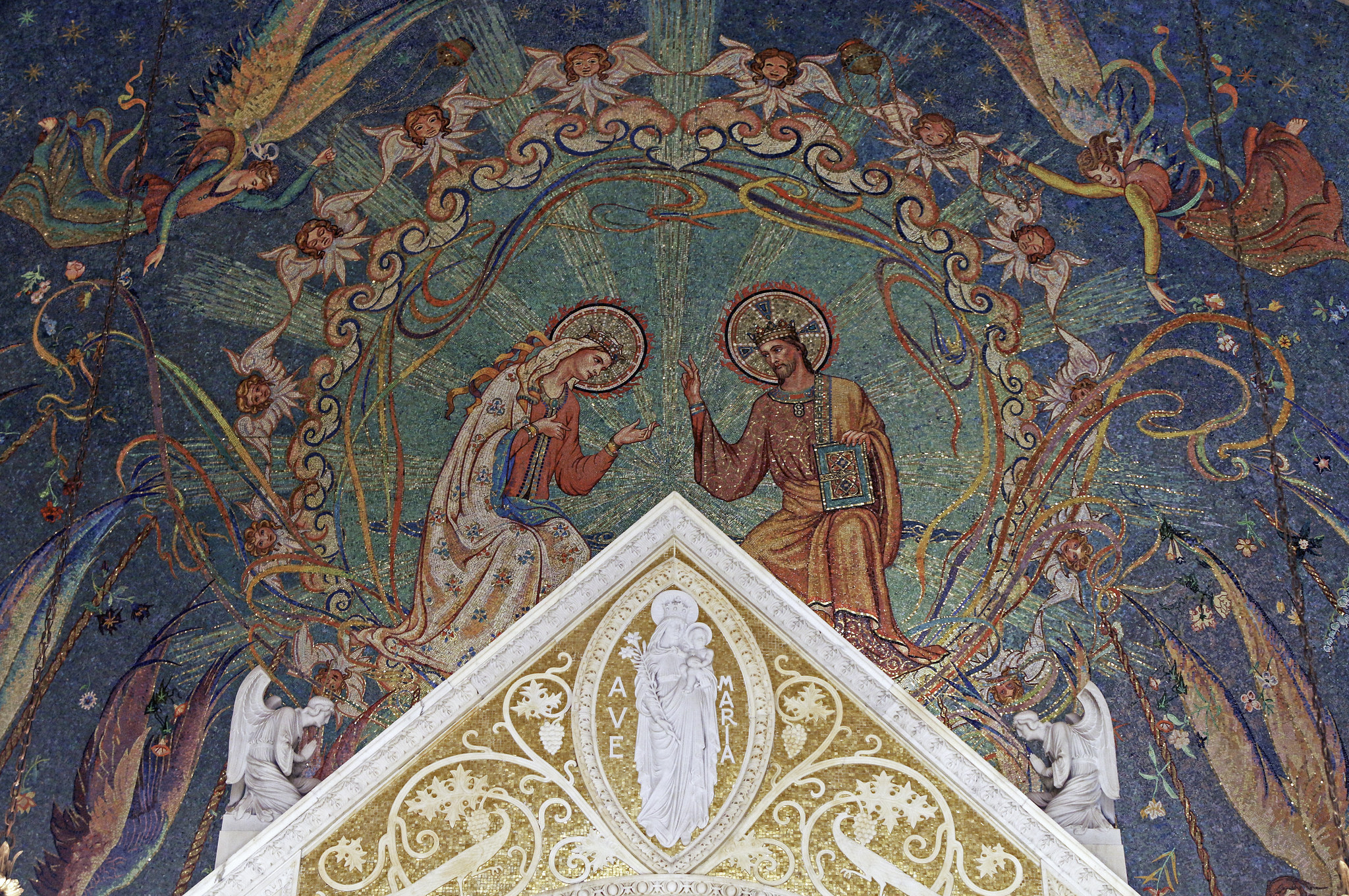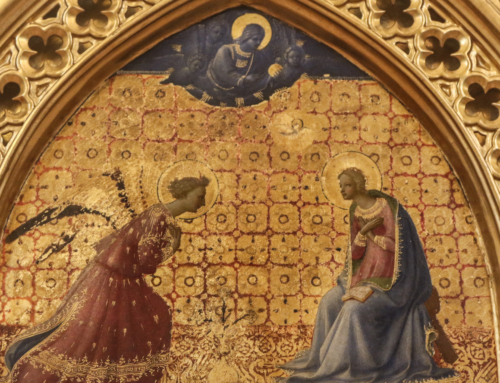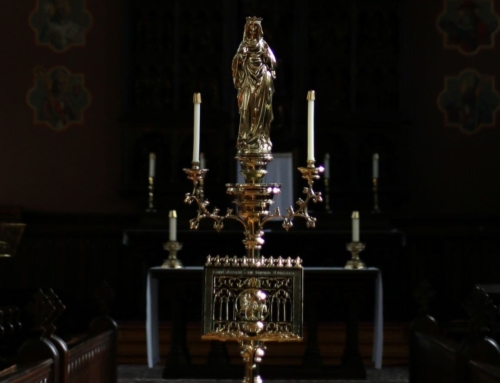Before I entered the Catholic Church, if someone asked me to name a saint after the apostolic age two names came to mind: St. Francis of Assisi, well-known for his voluntary poverty and ubiquitous presence in the form of garden statues, and Mother Teresa, the Catholic nun who cared for the poor and traveled the world telling people about God and his love. Because Mother Teresa’s life was so closely identified with Jesus Christ, the mere mention of her name elicits people’s thoughts, feelings, and attitudes about Jesus, including both love and hatred, as we are now witnessing in the wake of her canonization.
The name of Mary, the Mother of Jesus, which we celebrate today, has the same effect. As St. Louis de Montfort tells us, “Mary is the wonderful echo of God… When we say ‘Mary’, she re-echoes ‘God.’” More than any other name, the name of Mary points us toward her Son and reveals much about our own thoughts, feelings, and attitudes toward him. For instance, our reverence toward the new Eve, whose yes to God’s will opened humanity to God’s salvation, flows from our adoration for the fruit of her womb, the new Adam, who for love’s sake became obedient even to death. An aversion to the humility of this lowly handmaiden of the Lord, on the other hand, may point to a discomfort with the full humanity assumed by the eternally begotten Son of God. It’s possible that objections to Mary’s exaltation and veneration are in fact protests against God’s power and mercy, which raises up the lowly.
Mary’s closeness to and imitation of her Son not only means that her name will forever point to Jesus, as an example for all who follow Christ, but also that because of her Son her name will be forever remembered. This truth was known by faith many generations before the Roman Empire had been converted, before the preservation of the memory of Jesus would have been a reasonable historical assumption humanly speaking, and well before the Bible became the most printed, distributed, translated, read, and quoted writing in the history of the world. Mary herself, under the inspiration of the Holy Spirit, prophesied that she would be venerated by all generations and this prophecy was included in Luke’s Gospel (Lk 1:48). Like the woman who, after anointing Jesus’s head at Bethany, was assured by the Lord that “wherever this gospel is preached in the whole world, what she has done will be told in memory of her” (Mt 26:13), Mary’s name was guaranteed to be remembered by all who hear the Gospel of Jesus Christ precisely because of her closeness to him.
While it is not likely that our names will be remembered by the world or the Church on earth by future generations to the extent that the names of Mary and Mother Teresa are remembered, our conformity with Jesus Christ, by God’s grace, can grant us a higher form of remembrance, which we can share together with them. The eternal remembrance, honor, and glory which God offers to all the saints in heaven far exceed any possible remembrance we could have on earth, which will one day pass away. Unlike those who have no hope of eternal life, Christians do not need to desperately seek to “live forever” on earth through the remembrance of their names and deeds or through their children, because they have hope that God will remember them. For those whose names are written in the Book of Life (Rev 20:12), God has prepared an everlasting remembrance, a greater glory and true eternal life.
May God grant us the grace to follow the great examples of Mary, St. Teresa of Calcutta, and all the saints, so that whenever our name is mentioned people may be directed toward Jesus Christ and that we may also enjoy the remembrance and love of God in heaven for all eternity.
✠
Image: Fr. Lawrence Lew, O.P., Our Blessed Lady as Queen (used with permission)







